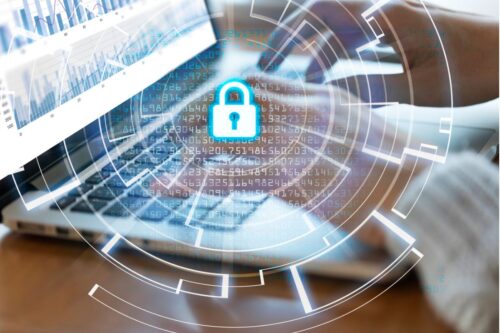Cybersecurity 101 Categories
What is zero trust certification?
Zero trust certification is a credential that demonstrates an individual’s knowledge and skills in the principles and practices of zero trust security. Zero trust is a security model that assumes that no user or device can be trusted by default, and that access to resources should be granted on a least-privilege basis.
To become certified in zero trust, individuals must typically complete a training course and pass an exam. The specific requirements for each certification vary, but they typically cover topics such as:
- The principles of zero trust security
- The different components of a zero trust architecture
- The implementation and management of zero trust solutions
- The security risks associated with zero trust
Zero trust certification can be a valuable asset for individuals who want to demonstrate their expertise in this emerging security discipline. It can also help individuals advance their careers in cybersecurity, as many organizations are looking for employees with zero trust skills.
Here are some of the benefits of obtaining a zero trust certification:
- Demonstrate your knowledge and skills in zero trust security
- Advance your career in cybersecurity
- Gain access to exclusive resources and networking opportunities
- Stay up-to-date on the latest zero trust trends and best practices
How do you obtain zero trust certification?
There are a few different ways to obtain zero trust certification. You can:
- Take a training course and pass an exam. This is the most common way to become certified in zero trust. There are a number of different training courses available, both online and in person. Once you have completed a training course, you will need to pass an exam to become certified.
- Self-study and pass an exam. If you are already familiar with the principles of zero trust security, you may be able to self-study and pass an exam. However, I recommend taking a training course first, as this will give you a solid foundation in the material.
- Get certified through your employer. Some employers offer zero trust certification as part of their employee development programs. If your employer offers this option, it is a great way to get certified without having to pay for the training course or exam yourself.
Here are some of the most popular zero trust certifications and the requirements for each:
- Forrester’s Adopting Zero Trust: This certification is designed for individuals who want to learn the basics of zero trust security. There are no prerequisites for this certification, but you should have a basic understanding of networking and security concepts.
- ISC²’s Certified Zero Trust Practitioner: This certification is designed for individuals who want to demonstrate their knowledge of the principles and practices of zero trust security. The prerequisites for this certification include ISC²’s Certified Information Systems Security Professional (CISSP) or Certified Cloud Security Professional (CCSP) certifications.
- Microsoft’s Certified: Zero Trust Security: This certification is designed for individuals who want to demonstrate their skills in implementing zero trust security solutions in Microsoft environments. The prerequisites for this certification include Microsoft’s Certified: Security Operations Analyst (MCSA: Security Operations Analyst) certification.
How long does it take to become zero trust certified?
The amount of time it takes to obtain zero trust certification varies depending on the certification you are pursuing, your prior experience, and how much time you can dedicate to studying. However, most people can expect to spend between 1 and 6 months studying for a zero trust certification.
Here is a breakdown of the average time it takes to obtain some of the most popular zero trust certifications:
- Forrester’s Adopting Zero Trust: 1-2 months
- ISC²’s Certified Zero Trust Practitioner: 3-4 months
- Microsoft’s Certified: Zero Trust Security: 4-6 months
Of course, these are just averages. Some people may be able to complete their studies in less time, while others may need more time. If you are serious about obtaining a zero trust certification, I recommend setting aside at least 1-2 hours per day to study. This will give you enough time to learn the material and prepare for the exam.
Here are some tips for studying for a zero trust certification:
- Start by taking a training course. This will give you a solid foundation in the material and help you identify the areas where you need to focus your studies.
- Use practice exams. This is a great way to assess your knowledge and identify any areas where you need more practice.
- Join a study group. This can be a great way to stay motivated and learn from other people who are also studying for the same certification.
- Don’t forget to practice your networking skills. Zero trust security is all about securing access to resources, so it is important to be able to demonstrate your networking skills in the exam.
What does it cost to become zero trust certified?
The cost of becoming zero trust certified varies depending on the certification you are pursuing, the training course you choose, and the exam you take. However, most people can expect to spend between $500 and $2,000 to become certified.
Here is a breakdown of the average cost of some of the most popular zero trust certifications:
- Forrester’s Adopting Zero Trust: $500-700
- ISC²’s Certified Zero Trust Practitioner: $1,000-1,500
- Microsoft’s Certified: Zero Trust Security: $1,500-2,000
Of course, these are just averages. Some certifications may be more expensive than others, and the cost of the training course and exam may vary depending on the provider. If you are serious about becoming zero trust certified, I recommend budgeting around $2,000 for the entire process.
Here are some tips for saving money on zero trust certification:
- Look for discounts. Many training providers offer discounts for students, government employees, and members of professional organizations.
- Consider self-study. If you are already familiar with the principles of zero trust security, you may be able to self-study and pass the exam. This will save you the cost of the training course.
- Wait for sales. Many training providers offer sales on their courses and exams throughout the year. If you are patient, you may be able to get a good deal.



